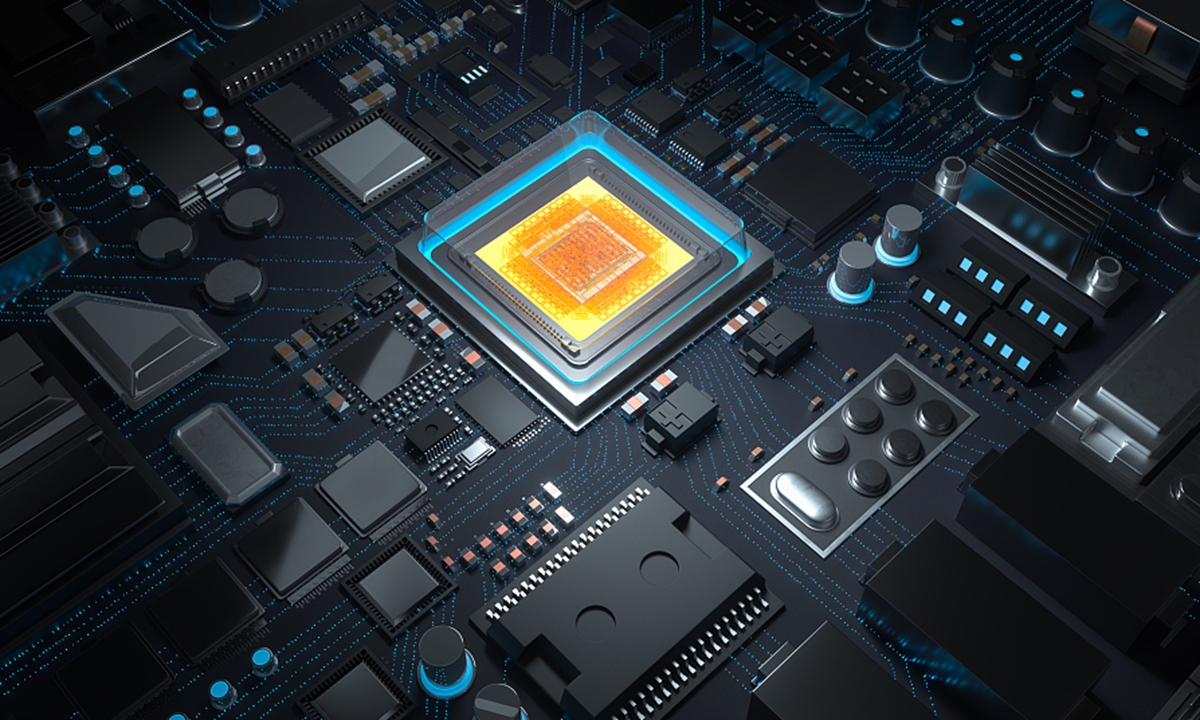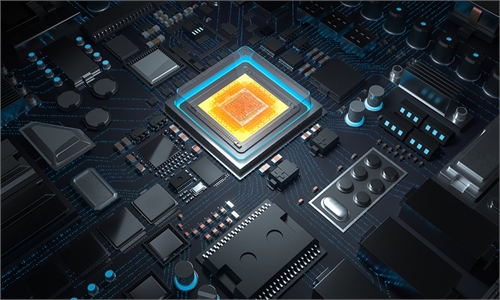
quantum chips Photo: CFP
Shares related to China's third-generation semiconductor development closed higher on Monday with some even rising by the daily limit, buoyed by expectations that the next generation of China's homegrown chips could give it an upper hand over foreign rivals.
However, excessive capital speculation may hinder the development of the industry, warned experts.
Zhejiang Jingsheng Mechanical & Electrical Co closed 12.87 percent higher on Monday, while shares of Sichuan HAITE High-tech Co and Hubei Tech Semiconductors Co climbed 10 percent - continuing an across-the-board rally in chips that began last week.
The rally in semiconductor stocks came amid news reports of Chinese officials speeding up development of third generation chips to counter foreign sanctions and bans.
The third-generation semiconductor sector has attracted a lot of attention and galvanized a large influx of capital in China since September, when the country announced plans to bolster the development of third-generation semiconductors under the 14th Five-Year Plan (2021-25).
Following the plan, shares of Focus Lightings Tech Co, Roshow Technology Co and Xiamen Changelight Co - all leading chip firms in China - have surged 62.27 percent, 10.61 percent and 48.26 percent in the month of September.
Apart from the government push, growing demand for chips amid a worldwide shortage also contributed to the sharp rise of the semiconductor industry, according to analysis from several securities companies.
"The development of third-generation semiconductors is expected to give China a fresh start to become a leader in the global chip industry just like it did with electric vehicles," Xiang Ligang, director-general of the Beijing-based Information Consumption Alliance, told the Global Times on Monday.
However, the technology is still at the research stage, and it is hard to predict the outcome, he noted. "No commercial products of third-generation semiconductors are available yet, and there is still a long way to go before mass production," Xiang said.
Represented by silicon carbide (SiC) and gallium nitride (GaN), third-generation semiconductor materials have superior performance including high voltage resistance, high frequency and high efficiency. But more than 90 percent of the semiconductor market is still dominated by first-generation semiconductor materials - specifically silicon materials, experts said.
Although the technology offers hope for China to achieve self-sufficiency amid a widening US technology ban, excessive speculation of capital will hurt the development of the industry, they warned.
"The money still needs to be used to solve urgent problems to support the entire chip industry, such as materials and equipment," Xiang said.

